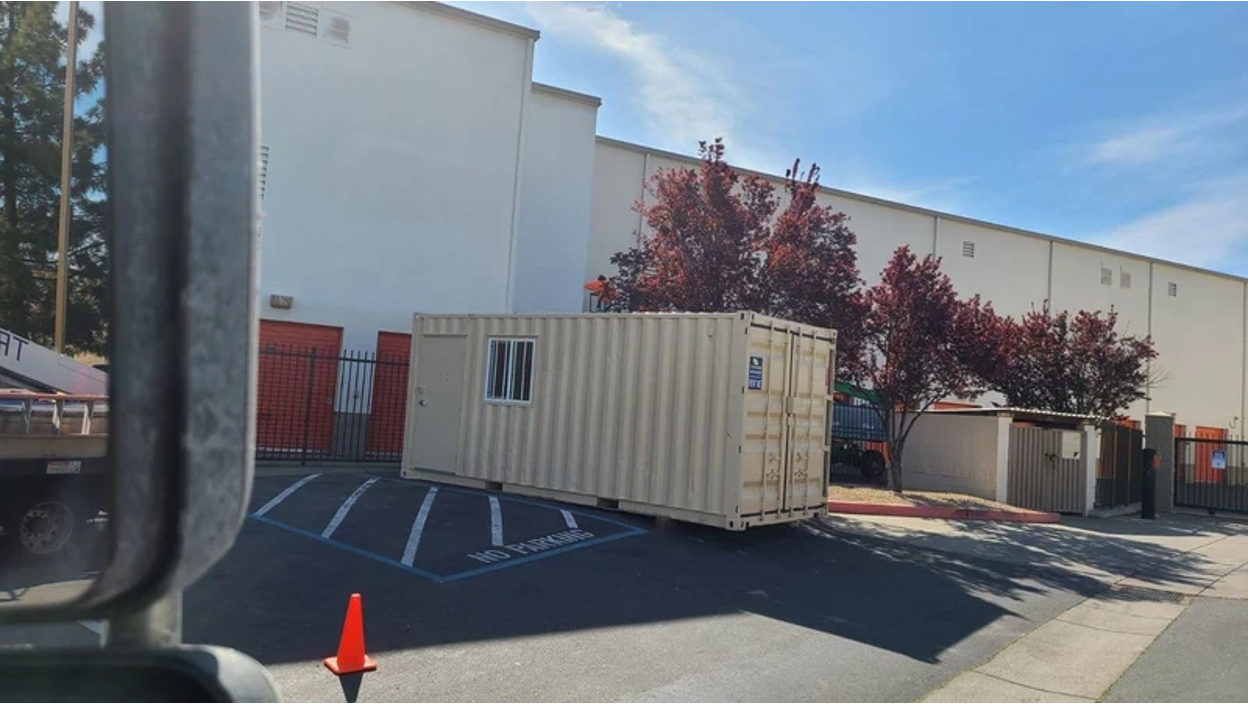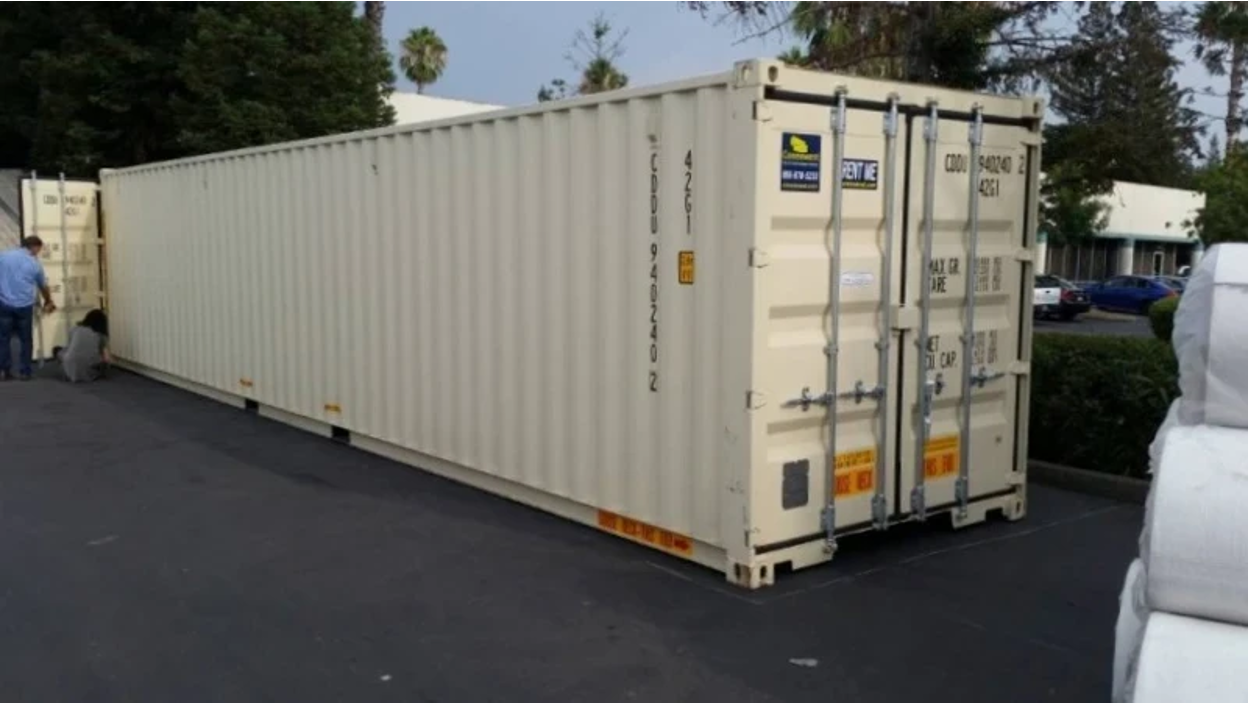Michigan Shipping Container Zoning Laws, Permits & Building Code Requirements
Get a quoteMichigan Shipping Container Zoning Law, Permit & Building Code Guide
Key Takeaways
- Shipping containers in Michigan are often classified as "temporary structures" and are subject to zoning restrictions.
- Permits are generally required, especially if you plan to use containers for residential or commercial purposes.
- Building codes dictate the structural integrity and safety standards that containers must meet.
- Local ordinances can vary significantly, so always check with your local zoning authority before proceeding.
- Conexwest provides comprehensive services and expert guidance for a complete shipping container solution all over the US.
Shipping Container Zoning Laws, Permits, & Building Code Requirements In Michigan
Zoning Laws
- Classification: Shipping containers are typically classified as accessory structures. This means they can be used for storage but may have restrictions on their placement and use.
- Location: Containers are often required to be placed in rear or side yards, not in front yards. Some municipalities may allow side yard placement under some conditions.
- Height Restrictions: Containers are usually not permitted to be stacked above a single unit to maintain safety and aesthetic standards.
Permits Required
- Land Use Permit: A land use permit is generally required before placing a shipping container on a property in Michigan. This applies to both temporary and permanent installations.
- Temporary Use Permits: For short-term use (often less than 180 days), property owners may need a temporary land use permit. Extensions may be granted based on certain criteria.
Building Code Requirements
- Compliance: Permanent shipping container structures must comply with local building codes, which often align with the International Building Code (IBC). This includes structural integrity, safety measures, and utility connections if applicable.
- Foundation Requirements: Many municipalities require a solid foundation for containers used permanently, such as gravel or concrete bases.
Here are examples of some municipalities in Michigan:
1. Conway Township
- Permit Requirement: Cargo containers can be placed permanently with a land use permit.
- Regulations:
- Must not be visible from the street.
- Cannot store hazardous materials.
- Must be painted in solid colors that blend with the surroundings.
2. Kochville Township
- Zoning Amendment: Shipping containers are limited as accessory buildings and must comply with specific site regulations.
- Restrictions: Containers must not interfere with required parking or landscaping areas.
Conexwest, a leader in shipping and storage solutions based in Northern California, offers new, used, and refurbished containers from 10ft to 45ft, with fast delivery within 3-7 days and container fabrication options like adding shelves and locks. We serve over 10,000 customers nationwide, including prestigious clients like the U.S. Navy and Google. As an ISO 9001 and AWS-certified company, we ensure top quality and competitive pricing. |
Tips For Complying With Michigan’s Shipping Container Regulations

Placing a shipping container on your property without permission may result in fines and legal issues
- Consult Local Authorities: Contact your local zoning office or building department for guidance on regulations and requirements. They can provide you with the latest and most accurate data for your region.
- Prepare Thorough Documentation: Have detailed architectural drawings ready that comply with local building codes. This should include dimensions, intended use, and placement on the property.
- Foundation Requirements: Many municipalities require a solid foundation for permanent containers. Prepare a base of gravel or concrete to meet this requirement.
- Screening Requirements: Some areas mandate that containers be screened from view. So, use landscaping or fencing for compliance with visibility restrictions.
- Color Regulations: Paint containers in colors that blend with the surrounding environment to adhere to aesthetic guidelines.
- Apply for Variances if Necessary: If your project does not comply with existing zoning laws, consider applying for a variance. Provide a compelling case explaining why your container use should be permitted despite zoning restrictions.
- Homeowners Association (HOA) Rules: If applicable, check for any HOA regulations that might impose additional restrictions on the use of shipping containers.
- Environmental Regulations: Be aware of any environmental regulations, especially if storing hazardous materials or if runoff could affect nearby water sources.
- Regular Maintenance: Keep your shipping container in good condition to avoid violations related to maintenance and aesthetics.
- Monitor Usage: Make sure that the container is used only for its intended purpose as specified in your permit to avoid penalties.
Choose Conexwest For Your Shipping Container Needs

Conexwest can help you comply with your local shipping container regulations
When choosing a provider for your shipping container needs, we at Conexwest stand out for several compelling reasons.:
1. Extensive Inventory and Customization Options
We have a vast selection of shipping containers, including new, used, and refurbished options in sizes ranging from 10ft to 45ft in length. Plus, if you have custom requirements, our customization capabilities allow you to modify containers with features like windows, HVAC systems, additional doors and more.
2. Quality Assurance
All our containers are inspected for quality. Thus, you can trust that your container will withstand the weather and provide secure storage for years to come. On top of that, we back this up with a strong warranty - ten years for new containers and five years for used cargo-worthy units.
3. Expert Guidance on Compliance
We understand the complexities involved in using shipping containers, especially when complying with local zoning laws and building codes in Michigan. You don’t need to worry about that. Our team is well-versed in the rules and regulations that govern shipping containers in your area and we can guide you through the process for easy compliance.
4. Exceptional Customer Service
Our team is knowledgeable and responsive, ready to address any questions or concerns you might have throughout the purchasing or renting process. We strive to make your experience seamless - from initial inquiry to final delivery.
5. Transparent Pricing
We believe in providing upfront and transparent pricing. So, you won’t encounter hidden fees or unexpected costs when working with us. This helps you budget effectively for your project and allocate funds appropriately for other aspects like permits, modifications, and site preparation.
Frequently Asked Questions (FAQs)
- Are permits always required for shipping containers in Michigan?
Yes, permits are generally required for shipping containers in Michigan, especially if they are used for residential or commercial purposes. The specific permit requirements can vary depending on the local zoning laws of the municipality where the container will be placed. Contact your local zoning office to determine the exact permits needed for your project.
- Can I use a shipping container for living quarters?
In most municipalities, using a shipping container as living quarters is heavily regulated or prohibited unless it meets building codes for residential structures. For example, many areas require that containers used as homes comply with the International Residential Code (IRC) and have proper foundations and utilities.
- Are there restrictions on what I can store in a shipping container?
Yes, there are restrictions on storage within shipping containers. Most regulations prohibit storing hazardous materials as defined by local fire codes. Containers must also not interfere with required parking spaces or obstruct public access.
- What are the consequences of not following regulations?
Failing to comply with local zoning laws and building codes can result in fines, orders to remove the container, or even legal action from local authorities.
- What is the delivery process of Conexwest like?
We provide fast delivery services within 3-7 days after your order is confirmed. Our team will contact you 24 hours before delivery to confirm a two-hour window. On the day of delivery, our driver will call you with a 30-minute notice for a smooth drop-off.
